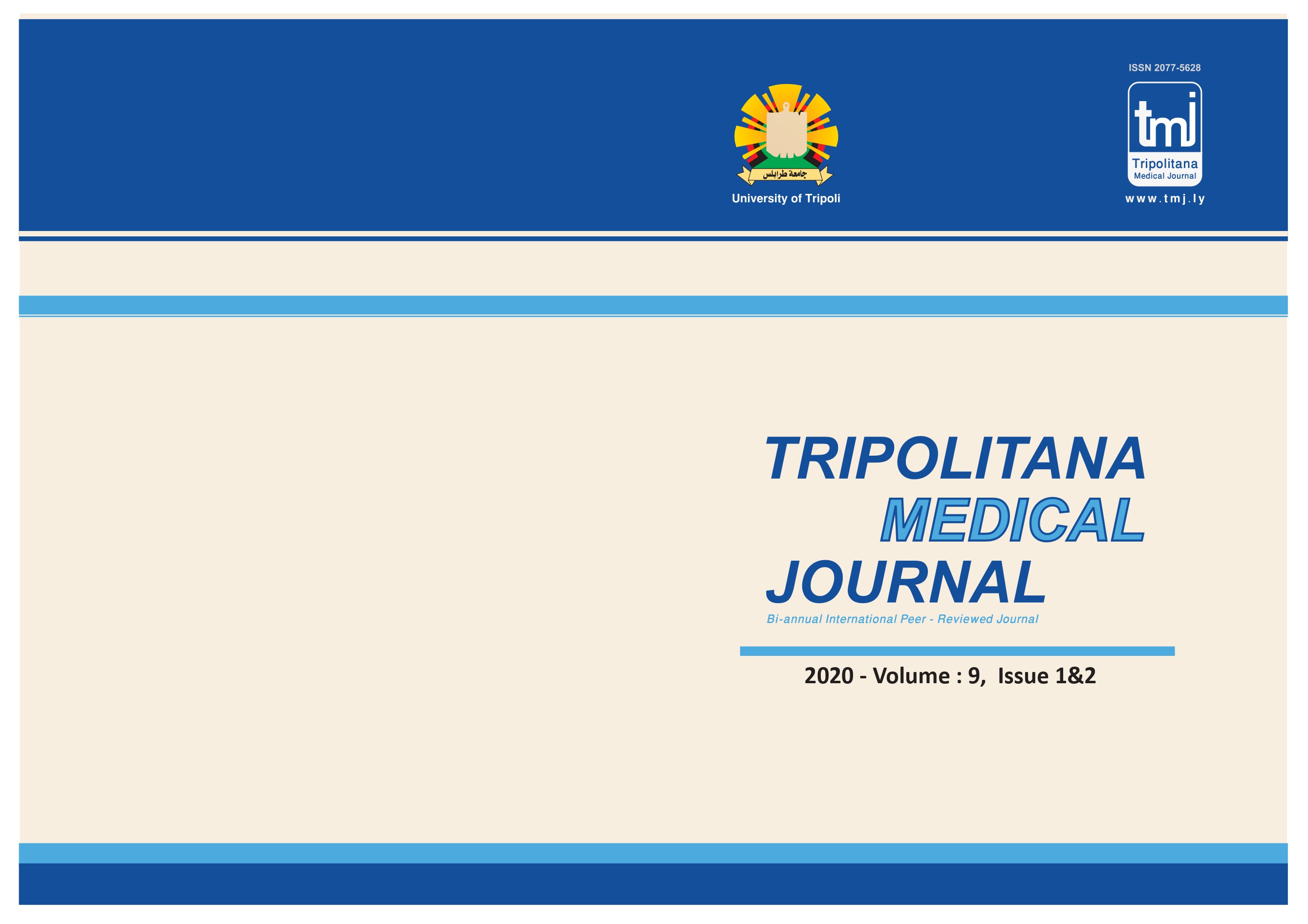Effect of Different Grades of Meconium-Stained Amniotic Fluid on Perinatal Outcome in Low Risk Pregnancies
الكلمات المفتاحية:
Meconium; Fetal outcome; Meconium Stained Amniotic Fluid; Meconium Aspiration Syndrome.الملخص
Amniotic fluid stained with meconium is a significant consideration as it influences the intrapartum observation
and management. Meconium aspiration by the fetus is considered a significant leading cause of increased perinatal
morbidity and mortality, consequently, this result in severe respiratory distress and meconium aspiration syndrome.
This study aimed to determine the impact of different degrees of meconium-stained amniotic fluid (MSAF) in low
risk pregnancies at term on pregnancy outcome. The study design was prospective cohort, conducted in Tripoli
Medical center, Tripoli/Libya, from January to July 2016, 155 patients were selected randomly from the hospital
during their delivery time. Sociodemographic data were obtained from the patients themselves and their files and
were collected in a pre-prepared information sheet. Additionally, the CTG result at time of delivery, the degree of
meconium and Apgar score at 1 minute, 5 minutes and 10 minutes were recorded. Four patients were excluded
from the study due to maternal complications, which developed after admission, and from the aim of the study we
included only low risk patients.
One hundred and fifty five patients were randomly selected for the study, 4 patients considered as high risk and
were excluded from the study. The mean age of the patients was (31+6.2) years. Out of 151 patients, 48 (31%)
were having clear liquor at the time of delivery, 15 (9.7%) of them have grade I meconium, 38 (%) have grade
II meconium and 51 (%) have meconium grade III. there were 20 cases (19.4%) with Apgar score below 7 at 1
minutes, among which 1 (0.9%) babies were grade I MSAF, 3 (2.9%) babies were in grade II, and 16 (15.5%) in
grade III MSAF, P value < 0.05, pathological CTG was found more commonly associated with grade III MSAF,
19 (12.6%) from all cases, followed by 5 (3.3%) of grade II MSAF and 2 (1.3%) of grade I MSAF. there were 72
(47.7%) vaginal deliveries and 79 (52.3%) delivered by caesarean section.
From our findings, we concluded that different grades of meconium are associated with increased pathological
CTG, operative interventions, low Apgar scores and overall increased perinatal morbidity and mortality.




